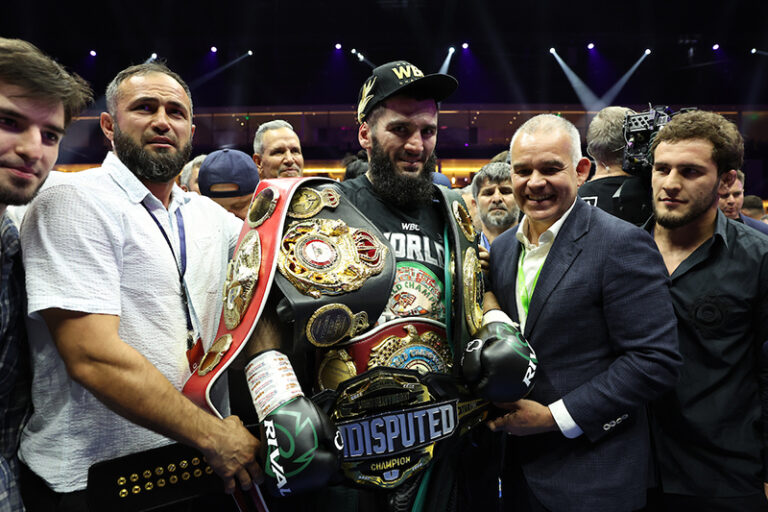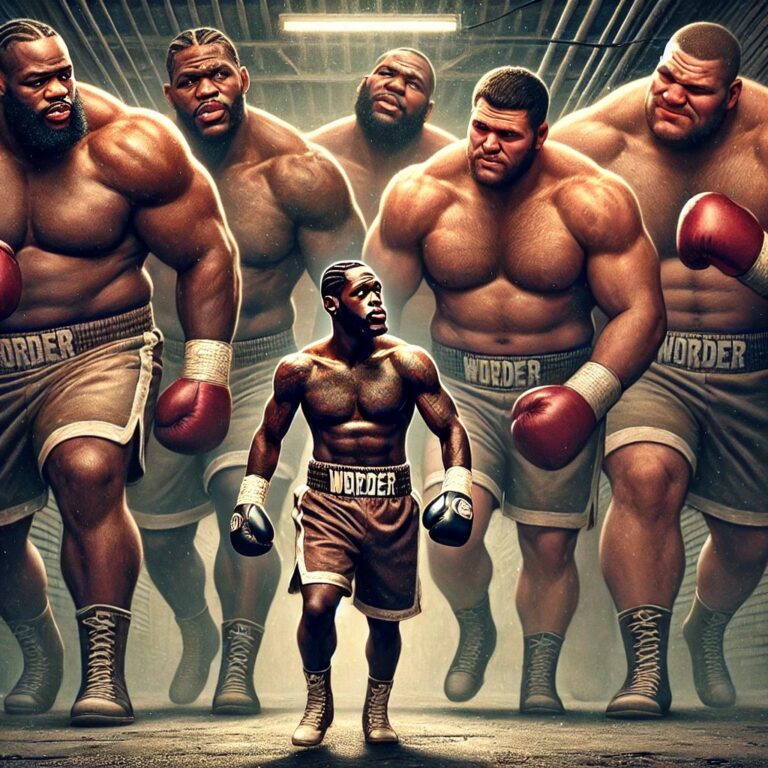
Article By: TUFF Glove Boxing
In light of Terence Crawford’s recent tweet, the issue of how casual boxing fans, particularly in the U.S., often dismiss talented fighters from other regions has become more pressing. Crawford’s statement—“Just because you never heard of a fighter doesn’t mean he’s a bum. Now everyone is high on Murtazaliev. Y’all need to stop downing fighters just because y’all don’t pay attention to them”—serves as a stark reminder of how underappreciated many fighters outside the mainstream spotlight are.
The Issue: Casual Fan Bias
The problem Crawford highlights is the ignorance many casual American boxing fans show toward fighters from Europe, Asia, and other parts of the world. Fighters like Bakhram Murtazaliev, Israil Madrimov, and others have faced this type of unfair judgment simply because they aren’t household names in the U.S. Even with impressive records and strong competition under their belts, these boxers are often viewed as “nobodies” or “bums” until they upset a recognized name. This bias creates a false narrative about the global state of boxing and hinders a fair appreciation of talent.
This dismissiveness by some U.S. fans isn’t new. In the past, great European fighters like Joe Calzaghe, the Klitschko brothers, and even more recent champions like Oleksandr Usyk were initially overlooked until they broke into the American market or defeated U.S.-based fighters. However, this doesn’t reflect the true nature of their skill sets or accomplishments.
Highlighting Overlooked Fighters
- Bakhram Murtazaliev: Following his dominant performance against Tim Tszyu, Murtazaliev is a prime example of a fighter being underestimated until he proved himself in the ring. His undefeated record (now 23-0) and world title status weren’t enough to earn widespread respect until he dismantled a more familiar name.
- Israil Madrimov: Another fighter whose skill has been largely overlooked by casual fans, Madrimov has consistently performed at a high level in the super welterweight division. His technical skills, relentless work rate, and unique style make him a force to be reckoned with. Yet, outside of hardcore boxing circles, he remains relatively unknown.
- Artur Beterbiev: Although Beterbiev has gained some recognition, especially after unifying the light heavyweight division, he is still often not mentioned in the same breath as American stars. His dominance in the division, however, shows that skill transcends nationality.
- Sergey Lipinets: Another underappreciated fighter is Lipinets, a former champion with a solid skill set. Despite proving his worth in multiple divisions, he doesn’t receive the fanfare of lesser-achieving American fighters.
Solutions to the Casual Fan Bias
- Better Global Coverage: Boxing promotions and media outlets need to invest more in promoting international fighters and their stories. Fighters like Murtazaliev and Madrimov need more media visibility, whether through fight documentaries, interviews, or promotional events. These fighters’ backgrounds and journeys are often as compelling as any American fighter’s, and fans need access to these narratives to appreciate their talents fully.
- Increase International Fights in the U.S.: By scheduling more international fights in the U.S., fighters from regions like Eastern Europe and Asia will have more opportunities to showcase their talents to American audiences. Historic examples include Manny Pacquiao’s rise, where he had to fight and win in America to gain recognition despite being an established champion in Asia.
- Foster a Global Mindset in Boxing Culture: American fans need to adopt a more global mindset regarding boxing. In the modern world, where streaming and digital platforms allow access to fights worldwide, fans have no excuse not to follow talent outside their geographical area. Social media platforms can also help promote international stars.
- Historic Parallels: Drawing from the past, fighters like Joe Calzaghe, who went 46-0, were dismissed for years because they fought primarily in Europe. The Klitschko brothers dominated the heavyweight division for over a decade but didn’t receive their due respect in the U.S. until later in their careers. By reflecting on these examples, fans can recognize that dismissing fighters from lesser-known regions is a mistake that limits their understanding of the sport.
- Boxing Education for Fans: Educating casual fans about international rankings, fighter records, and the importance of understanding global competition can be an effective tool. Promoters, trainers, and commentators can contribute to this education by providing context during broadcasts and interviews. Highlighting achievements, technical skills, and potential matchups can spark more interest in fighters who are not yet household names in America.
Conclusion: Respecting Global Talent
Crawford’s statement serves as a wake-up call to boxing fans everywhere. Just because a fighter isn’t widely known or doesn’t have mainstream recognition doesn’t mean they lack skill or ability. Fans need to move past the notion that only U.S.-based fighters matter. By expanding their focus and appreciating the global nature of the sport, the boxing community can start to acknowledge talent in its entirety, respecting fighters like Murtazaliev, Madrimov, and many others before they pull off a big win.
Boxing is a global sport, and it’s time for fans to embrace its worldwide nature. In doing so, they might just discover that the next great champion isn’t someone they’re already familiar with, but a name they haven’t heard yet.



